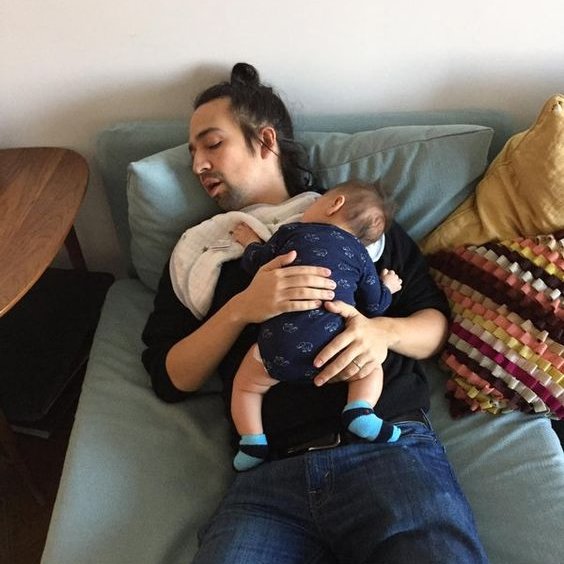Q: What's the deal with your Twitter name?
A: It's the de-Anglicized, Irish version of my name. I changed it for St. Patrick's Day and found that I...kinda didn't want to change it back? So I didn't. I'm not changing it IRL (yet?), but I do like having it here on Twitter.
🧵
A: It's the de-Anglicized, Irish version of my name. I changed it for St. Patrick's Day and found that I...kinda didn't want to change it back? So I didn't. I'm not changing it IRL (yet?), but I do like having it here on Twitter.
🧵
A few people at #AABA2023 recognized me from Twitter (😳) and asked about the name thing. My learning and thinking about this is ongoing, so I honestly don't have much to say about it right now, but here's some basic info for the curious...
Q: How do you pronounce it?
A: Thanks for asking!
1. Breej (with a slightly rolled "r")
2. Nick
3. AH (rhymes with "not")
4. nuh
The "accent" is called a fada, and it lengthens the vowel. Irish speakers are very proud of the fada!
A: Thanks for asking!
1. Breej (with a slightly rolled "r")
2. Nick
3. AH (rhymes with "not")
4. nuh
The "accent" is called a fada, and it lengthens the vowel. Irish speakers are very proud of the fada!
Q: Wait. Isn't it "Brigid"?
A: That is still Anglicized. Brigid is a Catholic saint who may or may not have actually existed. Bríd is an Irish goddess who was coopted by Christian missionaries in order to convert (colonize) the Irish people.
A: That is still Anglicized. Brigid is a Catholic saint who may or may not have actually existed. Bríd is an Irish goddess who was coopted by Christian missionaries in order to convert (colonize) the Irish people.
Q: What's the deal with "Nic"? Shouldn't it be "Mac"?
A: "Mac" means "son of." Nic = (unmarried) "daughter of". The prefix changes upon marriage for women, but not for men. I'm still learning how Irish feminists think about this part of things...
A: "Mac" means "son of." Nic = (unmarried) "daughter of". The prefix changes upon marriage for women, but not for men. I'm still learning how Irish feminists think about this part of things...
Q: K but *why* tho?
A: The past few St. Patrick's Days have had me thinking about the colonization of my ancestors and a sense of something lost that I want to reclaim. I've also been re-learning the Irish language and developing a deeper affinity for it.
A: The past few St. Patrick's Days have had me thinking about the colonization of my ancestors and a sense of something lost that I want to reclaim. I've also been re-learning the Irish language and developing a deeper affinity for it.
...I've also been thinking about the racism that many Irish Americans engage in in the name of "heritage," and the ongoing colonization of people today. We're not the only ones who have had to abandon our names and language in order to avoid economic consequences.
...But there are other reasons that are more personal and which I cannot yet articulate.
Side note: The Irish did experience indentured servitude, and other forms of oppression, in the U.S., but memes misrepresenting this history have been used to deny anti-Black racism and the horrors of American chattel slavery.
limerick1914.medium.com/all-of-my-work…
limerick1914.medium.com/all-of-my-work…
A lot of people with "ethnic" names are not white. Here are some of their thoughts on why names matter, weaponized incompetence around pronunciation, and how you can respect peoples' names:
👓mednews.uw.edu/news/say-my-na…
📺
👓mednews.uw.edu/news/say-my-na…
📺
Hope this satisfies some curiosities and gives you some things to think about. My learning and thinking about Irish-American heritage, racism, and decolonization is ongoing and I sometimes share using the hashtag #DecolonizeStPatricksDay in hopes of encouraging more discussion.
For those of you who would like to hear it pronounced. One of the tricky things about this for me is it contains 2 sounds that don’t exist in American English. 😬
https://twitter.com/bridgetmcgann/status/1653555356256317440
Fun fact. Prior to standardization, that “h” at the end, which softens or silences the d, would have been a “ḋ.” ←That dot is called a ponc séimhithe or sí buailte, derived from the punctum delens used in medieval manuscripts. I love it and am SO SAD they got rid of it! ☹️
• • •
Missing some Tweet in this thread? You can try to
force a refresh

 Read on Twitter
Read on Twitter






